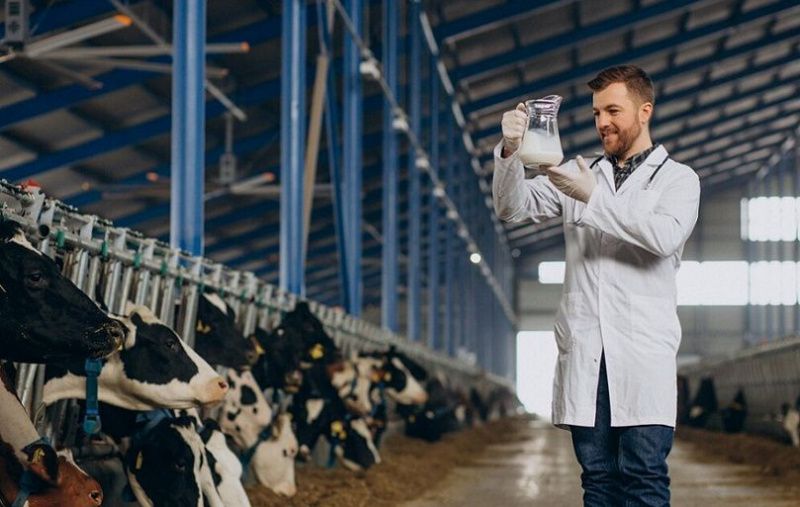Avian Influenza Spreads to Cattle: U.S. Authorities Issue Reassurances
U.S. agricultural regulators have confirmed cases of highly fatal avian influenza, commonly known as bird flu, in cattle across Texas and Kansas.

The United States Department of Agriculture (USDA) made the announcement on Monday, marking the first time the virus has been identified in cows.
According to reports, the infection appears to have originated from wild birds, with incidents of dead birds reported on affected farms. Investigations by federal and state agencies were initiated following reports of sick cattle in Texas, Kansas, and potentially New Mexico.
Despite the concerning development, officials emphasized that the nation's milk supply remains safe due to pasteurization, which effectively eliminates viruses. Samples of unpasteurized milk collected from sick cows did show traces of the virus, but the risk to consumers was deemed minimal.
Dr. Jim Lowe, a veterinarian and influenza researcher at the University of Illinois at Urbana-Champaign, clarified that the virus was only found in abnormal milk, described as thick and syrupy, which was promptly discarded as per regulatory protocols.
The recent cases in cattle follow the detection of highly pathogenic bird flu in goats announced by Minnesota officials the previous week. Although no genetic mutations increasing the risk to humans have been identified in the flu samples from sick cows, experts urge continued vigilance.
Dr. Stacey L. Schultz-Cherry, a virologist at St. Jude Children’s Research Hospital, attributed the spread to contact with diseased wild birds, highlighting the ongoing global bird flu outbreak that has severely impacted wild bird populations.
Andrew Bowman, a molecular epidemiologist at Ohio State University, expressed concerns about potential transmission among cattle, emphasizing the need for swift resolution and ongoing monitoring.
As investigations and analysis continue, the USDA and its partners pledge to provide timely updates on the evolving situation, underscoring the importance of proactive measures to address the spread of avian influenza.
According to reports, the infection appears to have originated from wild birds, with incidents of dead birds reported on affected farms. Investigations by federal and state agencies were initiated following reports of sick cattle in Texas, Kansas, and potentially New Mexico.
Despite the concerning development, officials emphasized that the nation's milk supply remains safe due to pasteurization, which effectively eliminates viruses. Samples of unpasteurized milk collected from sick cows did show traces of the virus, but the risk to consumers was deemed minimal.
Dr. Jim Lowe, a veterinarian and influenza researcher at the University of Illinois at Urbana-Champaign, clarified that the virus was only found in abnormal milk, described as thick and syrupy, which was promptly discarded as per regulatory protocols.
The recent cases in cattle follow the detection of highly pathogenic bird flu in goats announced by Minnesota officials the previous week. Although no genetic mutations increasing the risk to humans have been identified in the flu samples from sick cows, experts urge continued vigilance.
Dr. Stacey L. Schultz-Cherry, a virologist at St. Jude Children’s Research Hospital, attributed the spread to contact with diseased wild birds, highlighting the ongoing global bird flu outbreak that has severely impacted wild bird populations.
Andrew Bowman, a molecular epidemiologist at Ohio State University, expressed concerns about potential transmission among cattle, emphasizing the need for swift resolution and ongoing monitoring.
As investigations and analysis continue, the USDA and its partners pledge to provide timely updates on the evolving situation, underscoring the importance of proactive measures to address the spread of avian influenza.
Key News of the Week











